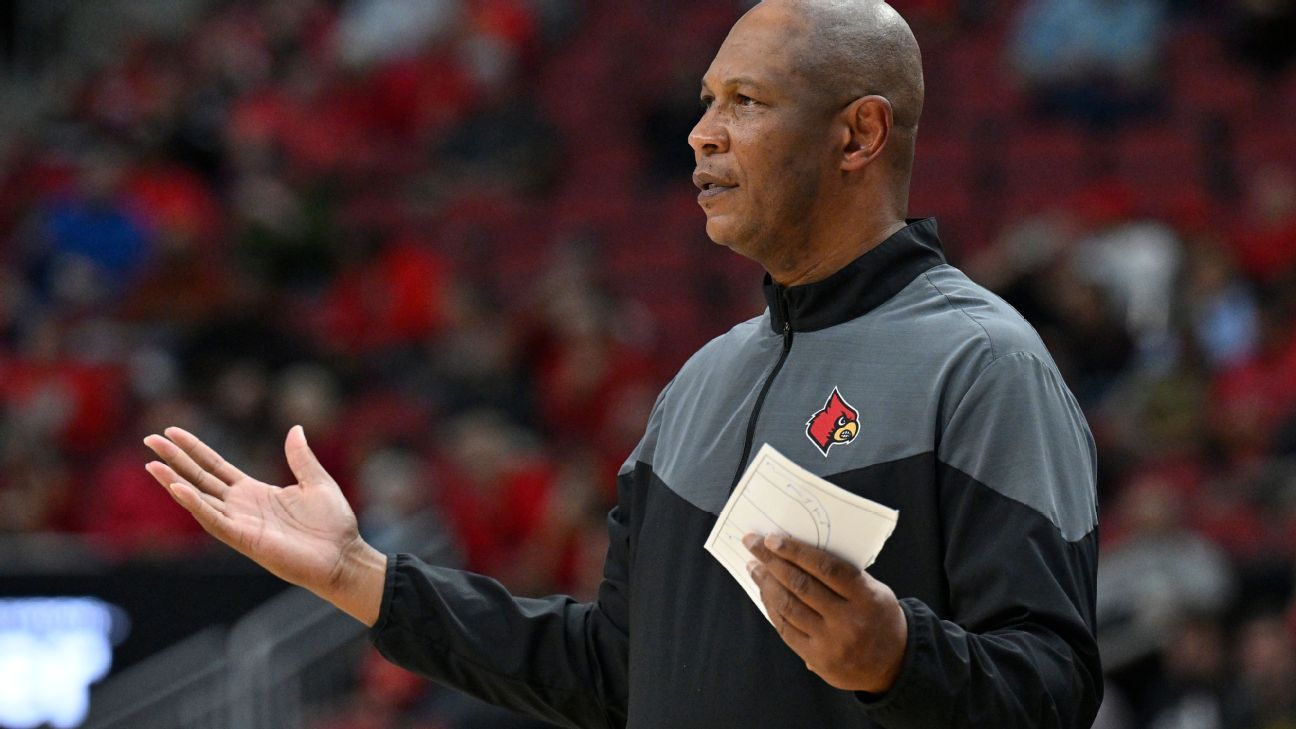When Louisville started its season 0-9, Cal did even worse (currently 0-12) and teams like Troy were winning on the road against opponents such as Florida State, some might have theorized a new era had dawned.
Maybe the rise of a very busy transfer portal means “buy games” — a major-conference program pays an agreed upon sum to a mid-major opponent to play a game on the big school’s home floor and, more often than not, the mid-major loses — are no longer automatic wins for home teams. Perhaps the greater freedom of movement for players across programs in men’s college basketball has translated into a new balance of power.
Possibly mid-majors are now stocked with talented transfers these programs never could have recruited straight out of high school. And maybe at least a few major-conference programs, though talented, are very young and thus particularly ripe for an upset early in the season.
Anyway, that was the theory.
It turns out, however, that the theory is at best unproven and at worst incorrect. This season, major-conference teams are 327-24 in what might be termed “presumed” buy games.
Final: Santa Clara 71, Cal 62
— Cal Basketball (@CalMBBall) December 18, 2022
Winning 93% of the time arguably qualifies as a robust success rate. More to the point, that win rate fits in seamlessly with what we’ve seen over the past five years when fans were present in the stands (i.e., not including 2020-21). Over the past five non-pandemic seasons prior to this season, major-conference teams won 93.6% of the time in such outings.
But wait, does winning 93.2% of the time in 2022-23 after doing so previously on 93.6% of occasions represent a new landscape in buy games after all? Definitions of a new landscape will vary.
We know home winning percentage in all men’s college basketball games has been declining very slightly yet measurably since the dawn of recorded data. We would expect to see the same trend manifest itself over the long haul in buy games.
APP STATE STUMPS LOUISVILLE!#TakeTheStairs pic.twitter.com/qOAR328A71
— App State Basketball (@AppStateMBB) November 16, 2022
For our purposes a buy game is a contest in which a major-conference program hosts a Division I opponent whose league ranks outside the top 10 at KenPom. The contests that fit this definition were termed “presumed buy games.”
As a substitute for scrutinizing roughly 2,500 agreements signed between programs over the past few nonconference seasons, however, buy games were counted here by means of a rough definition.
This is not an airtight definition by any means, but it gives us the advantage of applying the same measuring stick to any given season. Doing so suggests buy games can be thought of as similar to NCAA tournament pairings between Nos. 2 and 15 seeds.
No. 2 seeds are 138-10 in the modern tournament era. That nets out to a 93% win rate, albeit on neutral floors. In other words, victories for No. 15 seeds are shocking and rare and yet cumulatively foreseeable all at the same time.
What’s equally rare, in fact, is to see an entire major conference not lose a presumed buy game. It has happened just once in the past six years. The Big East ran the buy game table in 2017-18, posting a perfect 64-0 record. Maybe the Big Ten will equal that feat this season. The league is 52-0 in presumed buy games thus far in 2022-23.
Conversely, historically poor showings this season by both the ACC (winning “just” 88.5% of such outings) and, especially, the Pac-12 (84%) have made 2022-23 a time of feast of famine for presumed buy games.
It is rare for an individual major-conference team to post a .500 record or worse in buy games in a given season. Take Iowa State in 2020-21. The Cyclones were 2-22 overall and the coach was sacked after the season. Yet even Iowa State was 2-1 in presumed buy games that season.
Which brings us back to Cal. Included in the Golden Bears’ 0-12 record are losses in Berkeley to UC Davis, Southern, Texas State and Eastern Washington. Next up is a home game against UT Arlington. A loss there for Cal would be an upset according to KenPom but hardly a stop-the-world shock.
Just keep one thing in mind. If the Golden Bears fall short against the Mavericks, it could say as much about the home team as it does about the true nature of buy games in 2022-23.
